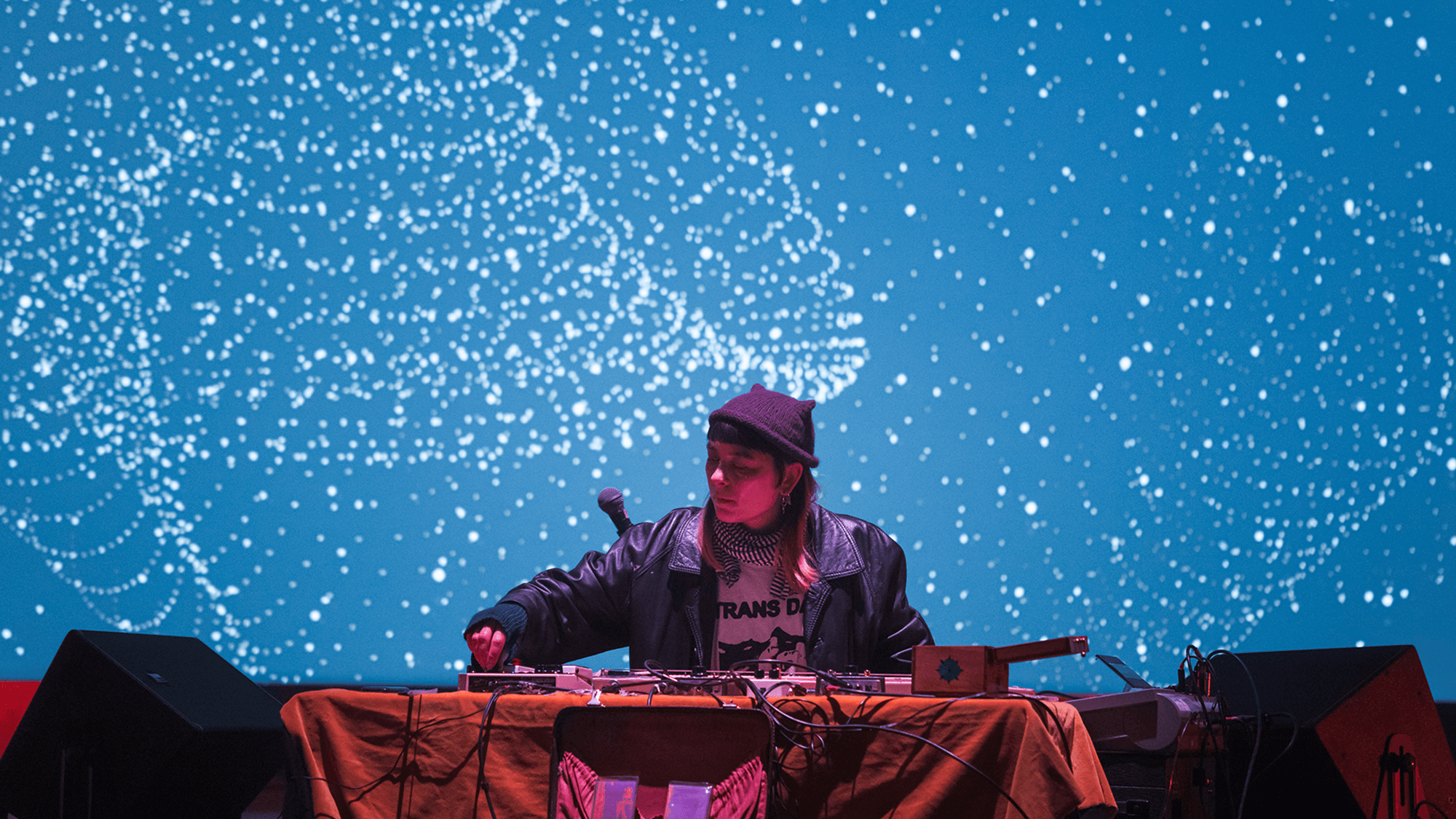
The Quiet Rush
Trio with Elsa Dorbath, Gilles Grimaître and Alexandre Babel
The Ferme-Asile concert hall, Saturday, November 22, 2025
Usine Electrique, 2023
Concert piece presented at the 1st edition of Biennale Son
When you first see the interior of the Usine de Chandoline, with its gigantic dimensions, length and height, its stone and concrete materials, and the relics of machines and mechanisms belonging to a bygone era, you're easily struck by a sense of disproportion. The architecture of a power plant is not made on a human scale, and the body is confronted with relationships that surpass it, to the point of tending towards an impression of dematerialization. And when we perceive the acoustic attributes of the site for the first time, another element emerges: the slightest clap of the hands, the slightest rise in the voice is amplified by the play of reflections and begins to fill the entire sound space, to the point of being able to render a series of sounds totally deafening.
It is at the heart of this paradoxical relationship, between the crushing of the human body and the feeling of sonic power, that Usine Electrique composes with acoustic space.
12 instrumentalists are scattered throughout the main hall and its corridors. Distant from one another, their actions are individual, and their possible interactions take place via remote visual and sound signals. It is the sum total of their interventions that defines a complete landscape, revealing to the listener the dimensions and nooks and crannies of the architecture. Usine Electrique is a tribute to the acoustic source of sound, to the dynamic extremes that range from a barely perceptible murmur to the deflagrations of metallic instruments.
As night falls, the relationship to space generated by visual perception is transformed, with sound gaining in importance over visual information conveyed by daylight. The musicians use artificial light to communicate, and must send each other light signals from a distance to complete the piece.
Cast
Conception, composition, musical direction
Alexandre Babel
Assistant musical director
Jeanne Larrouturou
Lighting design
Florian Bach
Lighting design
Bruno Pocheron
Interpreters
Students from classes at the Conservatoire Cantonal du Valais, Sion
Violin
Aliénor Crettenand, Stella Mönckeberg, Anna Rossier
Cello
Alissia Ducrey
Bass
Jean Démurger
Trumpet
Noé Bezençon
Percussion
Quentin Burnier, Colin Fellay, Martin Lièvre, Luca Mayor, Louis Roten, Baptiste Rudaz
Additional dates
Oct. 13, 2023: 2nd project, Fundacio Proha, Buenos Aires
2024 (date to be confirmed): 3rd project, Casa degli Artisti, Milan
Coproduction
Biennale Son, Sion
Colòn Contemporaneo, Buenos Aires
Association Zona K, Milan
With the support of Fondation Nicati-de Luze and Suisa
Alexandre babel
Born in 1980 in Geneva
Lives between Berlin and Switzerland
A percussionist trained in New York and at Geneva's Haute École de Musique, Alexandre Babel is a sought-after performer of experimental repertoire from the 20th and 21st centuries. A tenured percussionist with Ensemble KNM Berlin and founding member of the multidisciplinary collective RADIAL, he has worked with the ensemble Musikfabrik, the industrial rock band Sudden Infant and artists Anthony Pateras, Stephen O'Malley, Carol Robinson, Tristan Perich, Félicia Atkinson and Ryoji Ikeda.
Alexandre Babel is also a composer. His pieces are based on the qualities of his favorite instrument, the drums, with their disparate elements balanced around a single central movement. With other instruments treated as "resonant bodies", almost always acoustic, he deploys sounds in space whose aesthetics approach those of electronics. His concert installations are experienced as sculptures or installations, to be seen as well as heard.
From 2013 to 2022, Alexandre Babel was artistic director of the contemporary percussion collective Eklekto. The Chaux-de-Fonds festival Les Amplitudes dedicated its 2020 edition to his work as a composer and curator. In 2021, he won a Swiss Music Prize. In 2022, he collaborates with Latifa Echakhch for the Swiss pavilion at the 59th Venice Art Biennale.
Other artists

Antoine Chessex

Dianita
CollectifFacteur-01.webp)
Collectif Facteur
Other artists

Leoni Leoni

Rossella Biscotti







